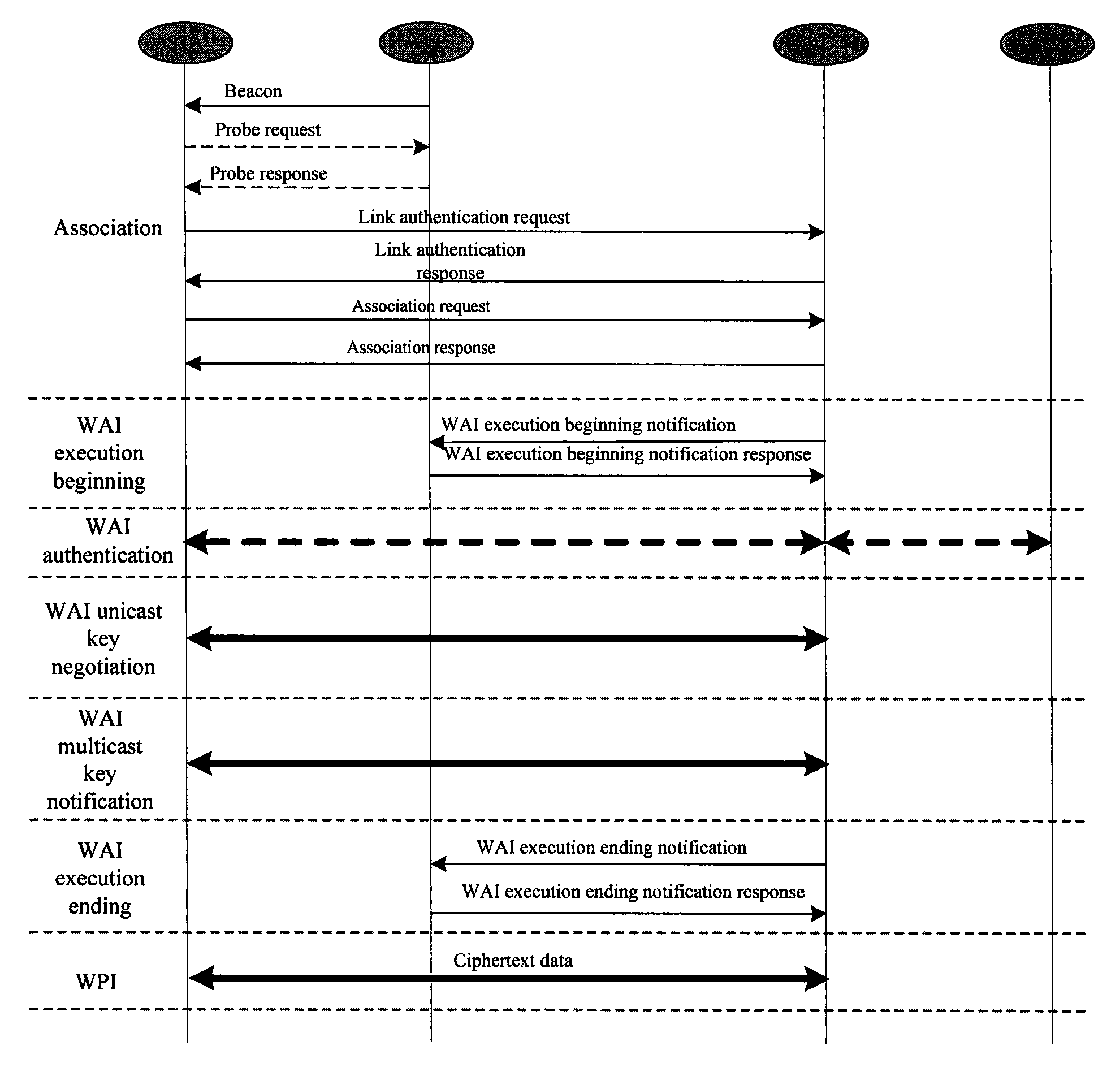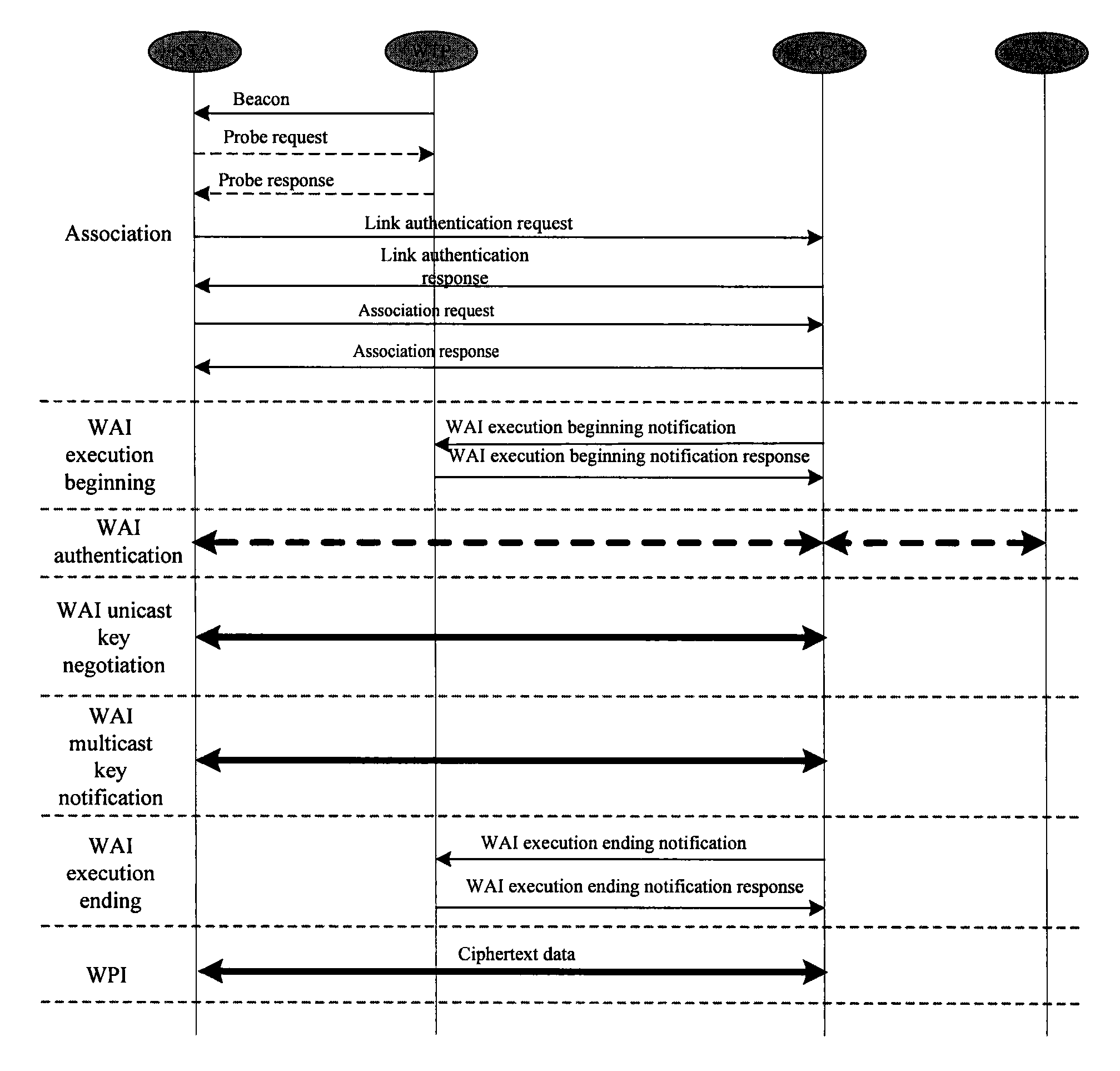Method for realizing convergent WAPI network architecture with separate MAC mode
a network architecture and mac mode technology, applied in data switching networks, instruments, wireless communication, etc., can solve the problems of heavy network burden, management cost, and difficulty in and achieve the effect of ensuring the security of the wlan
- Summary
- Abstract
- Description
- Claims
- Application Information
AI Technical Summary
Benefits of technology
Problems solved by technology
Method used
Image
Examples
Embodiment Construction
[0039]Referring to FIG. 1, in accordance with a preferred embodiment of the present invention, the method includes:
[0040]1) constructing a split MAC mode in which a WPI is implemented by an AC: splitting a MAC function and a WAPI function of AP to a WTP and the AC, respectively;
[0041]2) integrating the WAPI with the convergent WLAN network architecture in the split MAC mode in which the WPI is implemented by the AC;
[0042]2.1) associating a STA with the WTP and the AC;
[0043]2.1.1) the STA passively listening to a beacon frame of the WTP and obtaining related parameters of the WTP including a WAPI information element, for example, an authentication and key management kit and a password kit supported by the WTP; or the STA actively sending a probe request frame to the WTP and obtaining the related parameters of the WTP through a probe response frame sent from the WTP in receipt of the probe request frame, where the related parameters of the WTP includes the WAPI information element, fo...
PUM
 Login to View More
Login to View More Abstract
Description
Claims
Application Information
 Login to View More
Login to View More - R&D
- Intellectual Property
- Life Sciences
- Materials
- Tech Scout
- Unparalleled Data Quality
- Higher Quality Content
- 60% Fewer Hallucinations
Browse by: Latest US Patents, China's latest patents, Technical Efficacy Thesaurus, Application Domain, Technology Topic, Popular Technical Reports.
© 2025 PatSnap. All rights reserved.Legal|Privacy policy|Modern Slavery Act Transparency Statement|Sitemap|About US| Contact US: help@patsnap.com


